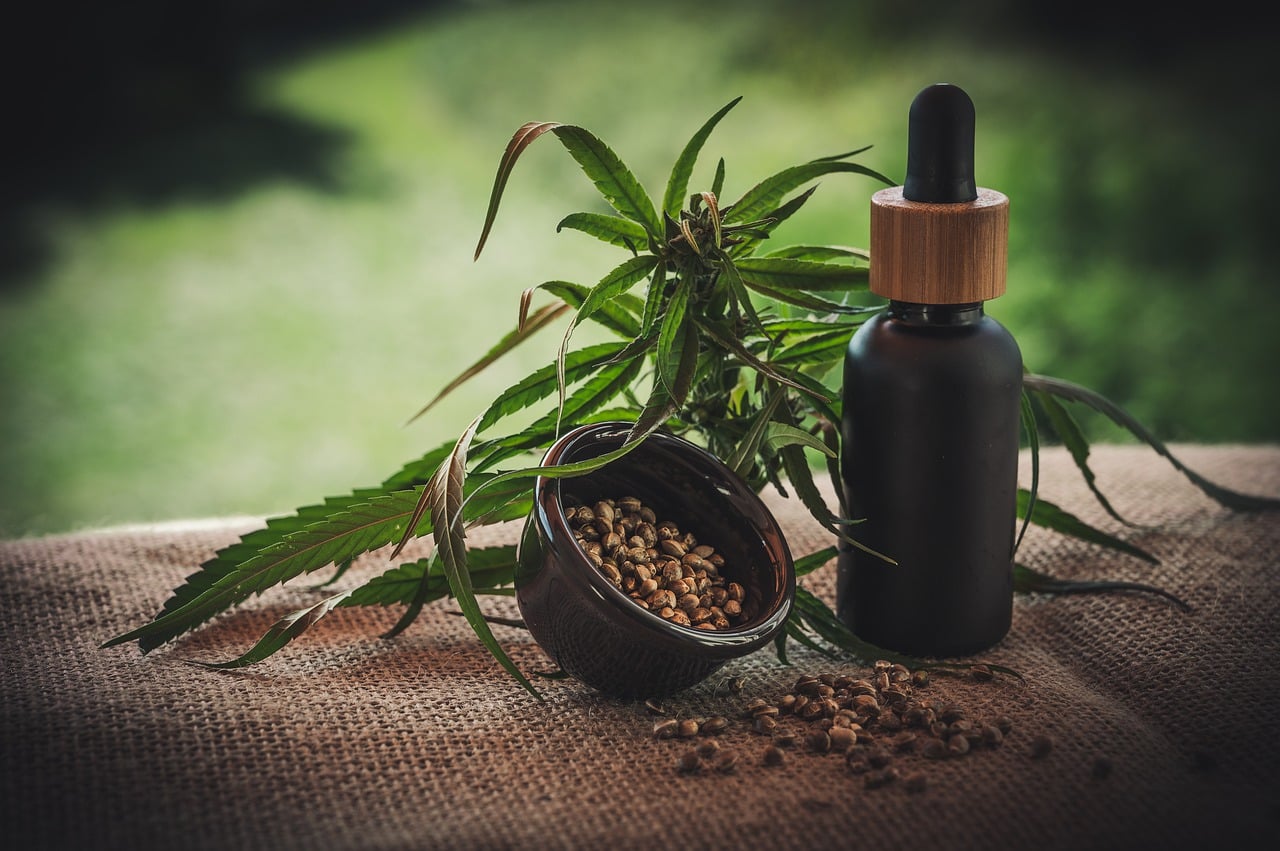Cannabidiol, or CBD, is a growing sector, thanks to its benefits in treating chronic pain and easing anxiety. Although the market was healthy before Covid-19 hit, the pandemic boosted it even further, helping remove the stigma surrounding mental health treatments while unfortunately, long Covid and the effects of months of isolation and fear of infection added to the number of people needing relief from chronic pain and/or anxiety and depression disorders.
Q4 2021 hedge fund letters, conferences and more
In 2021, the global market was valued at $3.5 billion, but it’s estimated to shoot up at a CAGR of 21.2% by 2028, reaching $13.4 billion by that year. Post-pandemic, hemp-derived CBD is expected to grow at a CAGR of 23.4%. On top of that, more and more states are legalizing marijuana, with 36 states having already legalized it for medical use and 15 of them, plus Washington, DC, approving it for recreational use too.
There are a number of ways that people can access CBD products, including through licensed dispensaries around the country, but many people find the easiest option is to order it online. As a result, the ecommerce CBD industry is seeing explosive growth. Once again, the pandemic helped by forcing many in-person purchase methods which accelerated online CBD sales.
As demand grows, so does the range of CBD products, which now includes tinctures, oils, topicals, smokables, pet foods, gummies, and a number of other CBD-infused foods. But while online CBD sellers are benefiting from the boom in CBD demand, they face a number of challenges, most notably the murky regulatory waters that CBD products inhabit.
CBD Regulation Is Under Construction
On the simplest level, federal law in the US permits people to buy and sell CBD products as long as they contain less than 0.3% THC, which is the psychotropic element in marijuana, and are derived from hemp plants, not marijuana flowers.
But it’s not actually that simple, as class-action lawsuits came to prove in 2019. The plaintiffs argued that CBD can’t be sold as a dietary supplement because in 2018, the FDA approved an anti-epilepsy drug that used CBD as the active ingredient, thus classifying it as a drug and not a food supplement.
The FDA has been slow to draw clear lines between approved and non-approved uses of CBD, saying they are still investigating the issues involved, but they are sending warning letters when they perceive a risk to the general public. As a result, many topics are being decided gradually over time through lawsuits, which means that CBD companies risk being called to fight their case in court and/or receiving a legal warning letter.
Ecommerce CBD companies are left with a tough line to tread, and it’s made more complex by the patchwork of regulations across different states. For example, smokable hemp is banned in Georgia, Hawaii, Iowa, South Dakota and Indiana, while Alaska requires CBD vendors to state a maximum safe dose for their products, and California and New York are considering similar regulations.
Until the FDA officially approves CBD as a dietary supplement, CBD food products can be sold within a state that permits them, but not across state lines.
As Congresswoman Kathleen Rice (D, NY) Representative Rice put it when introducing a new CBD regulations bill, “CBD products are exploding in popularity, but the lack of federal regulation surrounding them has put consumers at risk and left businesses looking for clarity.”
Here are some of the steps that CBD ecommerce businesses are taking to thread the needle of regulatory uncertainty.
-
Location-Based Sales
One of the biggest virtues of online sales — the fact that you can sell to customers anywhere — can cause trouble when it comes to CBD. As well as some CBD products being approved in some states but not others, there are also some states that require online CBD retailers to apply for a handling license.
Online CBD businesses need to carefully collect customer location data so they can be sure to stay on the right side of state laws.
It’s recommended to use product-based shipping restrictions, so you can make sure you don’t accidentally ship a product to a state where it’s not approved.
-
Marketing Language
One of the FDA’s biggest concerns — and the subject of almost all warning letters it has sent out in the last couple of years — is to prevent companies from making any unfounded claims about the health benefits of using CBD.
CBD businesses have to walk a very fine line to avoid falling foul of this principle. They generally use the language of “wellness,” taking care to stick to relative claims, like that CBD oil “could help you feel better” not that it “will cure your aches and pains.”
Additionally, CBD businesses tend to emphasize that their products use CBD derived from full spectrum hemp, and/or what percentage of THC they contain, so as to meet federal requirements about THC levels and types of CBD.
-
Ecommerce Tools
CBD businesses can’t choose from the same range of tools as other online businesses. For example, Shopify, BigCommerce and WooCommerce all support CBD businesses, but others do not. Leading payment provider Stripe won’t work with companies that sell CBD.
Marketing tools are more limited too. Google Ads won’t advertise products that use cannabis-derived CBD, only those based on only hemp-derived CBD, and Facebook and Instagram only allow you to mention topical hemp-derived CBD — not edibles, tinctures, or vape products.
Finally, some shipping companies, like FedEx for example, won’t ship CBD products.
CBD Business Is Booming, But Must Be Handled With Care
With demand for CBD exploding and the number of products growing all the time, it’s no surprise that CBD ecommerce companies are mushrooming. But there’s still a need to contend with regulatory challenges.
By paying careful attention to their choice of ecommerce tools, marketing messaging, and state laws, CBD companies are able to maintain profitability and build market share, without attracting undue legal attention.






